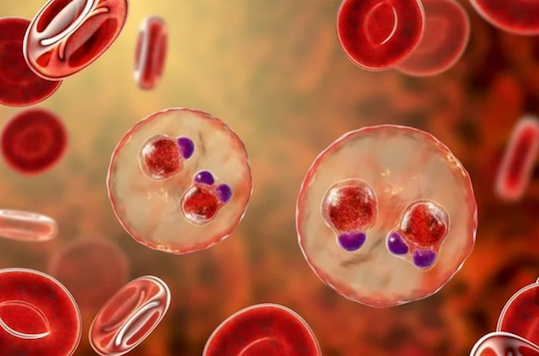
Image credit: shutterstock
In a significant breakthrough, researchers from the Swiss Tropical and Public Health Institute (Swiss TPH) and Australia-based Griffith University’s Institute for Glycomics have unveiled a crucial aspect of how the malaria parasite infiltrates human red blood cells.
The study highlights the pivotal role of a sugar known as sialic acid in this invasive process, with far-reaching implications for malaria vaccine and drug development.
Malaria, a persistent global health menace, recorded a staggering 249 million cases and 608,000 fatalities in 2022 alone. The malaria parasite, Plasmodium falciparum stands out as the main culprit behind severe malaria cases and the majority of malaria-related deaths, inducing clinical symptoms through its multiplication within red blood cells.
While the invasion of human red blood cells by P. falciparum has long been recognised, the precise molecular targets exploited by the parasite remained elusive. Although the role of the malaria protein, cysteine-rich protective antigen (CyRPA), was acknowledged in this invasion process, its specific contribution remained unclear.
The new study has delved into the binding dynamics of CyRPA. Their investigations pinpointed sialic acid as a critical component present on the surface of red blood cells, essential for the invasion process. Their findings mark a significant stride forward in understanding malaria invasion mechanisms.
While vaccines targeting P. falciparum’s pre-erythrocytic stages have been registered for use, their efficacy remains moderate. Currently, there is no registered vaccine targeting the blood stage of malaria, but ongoing research worldwide and by many groups focuses intensively on this aspect. The discovery of the key function of CyRPA in host cell invasion strongly supports the concept to clinically test CyRPA as a blood stage vaccine target. The study’s findings offer promising avenues for novel antimalarial drugs.




